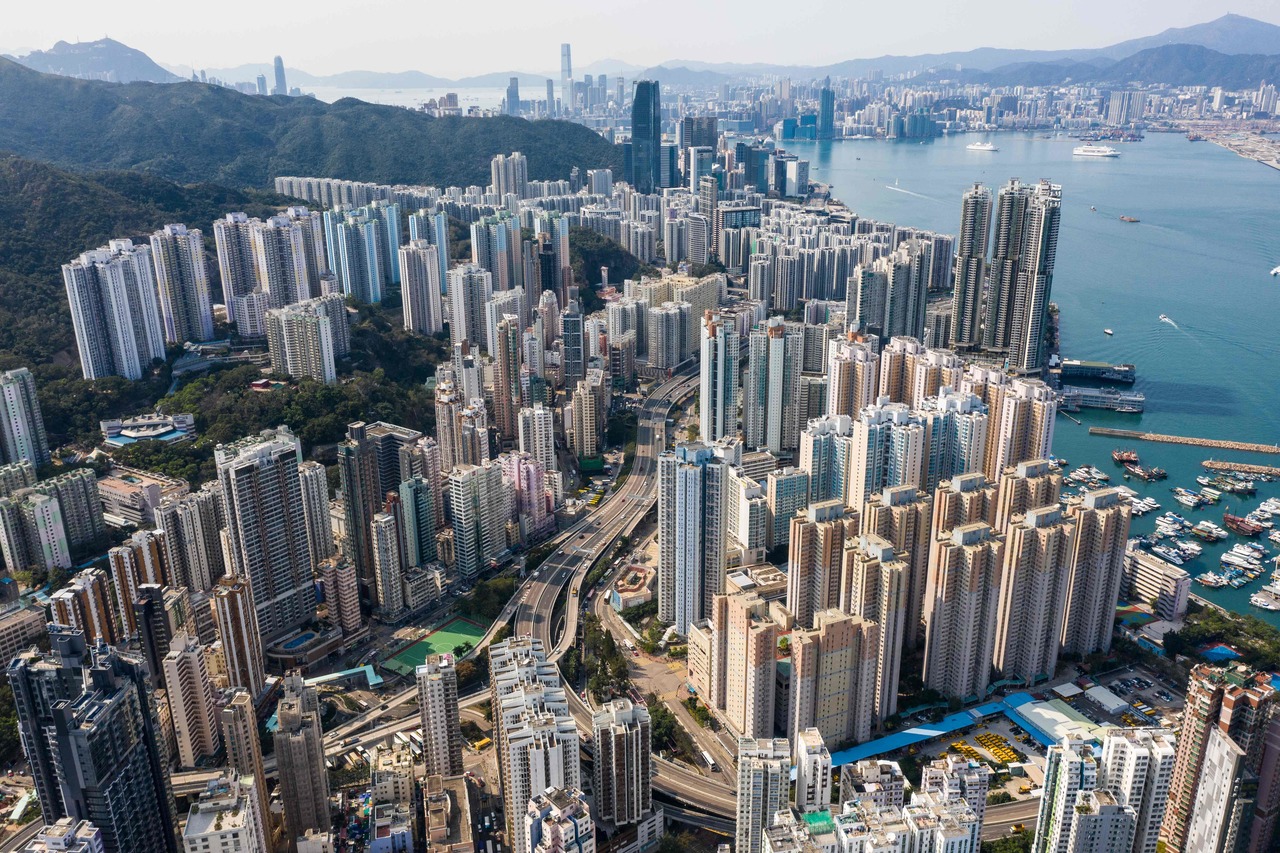Commentary
Hong Kong's teflon home prices are coronavirus-proof
Sign up now: Get ST's newsletters delivered to your inbox

Home prices have dropped just 6.1 per cent from their record high in June.
PHOTO: AFP
(BLOOMBERG) - Hong Kong's home prices have proved resilient to months of protests and now the coronavirus epidemic or Covid-19, a one-two punch that the city's finance chief likened over the weekend to "tsunami-like" shocks. While a hit is probably coming, the world's least affordable housing market still looks a better place to be than in Hong Kong office or retail property.
Home prices have dropped just 6.1 per cent from their record high in June, as measured by the Centa-City Leading Index compiled by Centaline Property Agency. The index has risen for four weeks in a row through Feb 9, the latest data, even as the virus shut down swathes of the Chinese economy, slowed Hong Kong tourist arrivals to a trickle and forced many of the city's financial employees to work from home.
A number of factors undergird the outlook for housing: the dominance of a small number of family-controlled companies that can influence supply; low interest rates; and limited leverage among home owners. Developers completed 14,000 units last year, 33 per cent lower than 2018, according to Morgan Stanley analyst Praveen Choudhary. By contrast, 31,000 units were built in 2002, just before the outbreak of severe acute respiratory syndrome or Sars. That was 35 per cent more than the year before.
High equity levels mean there's little pressure for home owners to sell, as I noted in November. The loan-to-value ratio for new mortgages dropped to 46 per cent in September, from a peak of 69 per cent in 2002, according to the Hong Kong Monetary Authority. Meanwhile, Hong Kong's one-month interbank rate, against which most mortgages are priced, has fallen back below 2 per cent this month.
To be sure, a drastic worsening of the economy would change the calculation. Hong Kong's unemployment rate is estimated to have climbed for a fourth month to 3.4 per cent in January. That's still far short of the 8.5 per cent peak reached during Sars. Having risen more than fivefold from their 2003 low, Hong Kong housing prices have attained a Teflon-like response to bad news.
That resilience is far less evident in commercial property, a sector that tends to move more in line with the state of the underlying economy. Once beloved by private equity firms for stable returns in a low-yield world, Hong Kong's office and retail real estate is losing appeal as companies reduce space and shoppers desert malls.
The total transaction value of office and retail properties slumped 12.9 per cent last year to HK$49.6 billion (S$8.87 billion), according to Bloomberg Intelligence analyst Patrick Wong. Grade-A offices recorded a 6 per cent vacancy rate in December, the highest level since April 2010, when the number was the same, figures from real estate broker Jones Lang LaSalle show. Chinese companies, which have become increasingly important in the commercial property market, reduced their take-up of new office space by almost 40 per cent. WeWork, the office-sharing company that scrapped its IPO last year, gave up some space.
With Hong Kong's gross domestic product shrinking 1.2 per cent last year, empty workplaces became a common sight even before the coronavirus outbreak forced people to work from home. By the fourth quarter, office prices had reached the lowest since the second quarter of 2018, according to JLL.
Retail landlords, meanwhile, started slashing rents by 60 per cent this month for tenants that are trying to cope with the dearth of shoppers. The fourth-quarter vacancy rate of of 9 per cent in core shopping areas was the highest in five years, JLL's figures show. Average rents of prime street shops in the city fell 21 per cent from a year earlier at the end of 2019, according to Bloomberg Intelligence.
Tourism, particularly from mainland China, is far more important to Hong Kong's economy than during Sars and has been hit hard by both the protests and the coronavirus. Preliminary visitor arrivals data for February from the Hong Kong Tourism Board show average daily traffic has plummeted almost 99 per cent to fewer than 3,000 people.
The retail sector was already facing a secular downturn. China has cut luxury taxes, reducing the incentive for mainland shoppers to buy in Hong Kong. Local consumption, barring panic-buying of toilet paper and face masks, is also suffering and will take time to recover.
For real estate investors, the best place to shelter may be in cash-rich Hong Kong developers such as Sun Hung Kai Properties and Li Ka-shing's CK Asset Holdings that have a higher exposure to housing. These look better placed to ride out the slump than rivals such as Wharf Real Estate Investment Co, owner of the Times Square mall in the prime Causeway Bay shopping district, or Hongkong Land Holdings, the biggest office landlord in the central business district.
In a testing environment, homes can be a refuge in more ways than one.
Nisha Gopalan is a Bloomberg Opinion columnist covering deals and banking. She previously worked for the Wall Street Journal and Dow Jones as an editor and a reporter.


